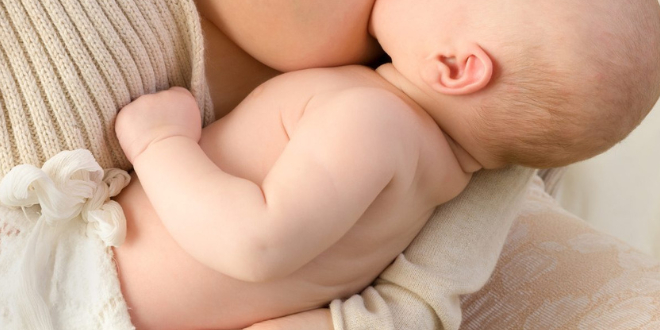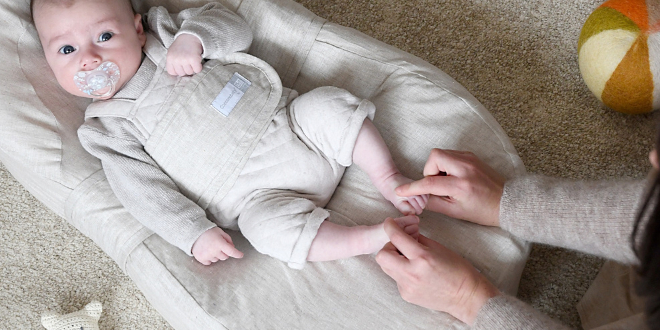Written by Ania Rae-Frac
As a baby sleep specialist, I often hear from exhausted parents who are running on empty and wondering what they’re doing wrong. The truth? You’re not alone, and you’re definitely not failing.
Sleep deprivation is a very real part of the newborn phase. It’s incredibly hard—especially because your sleep needs are vastly different from your baby’s. But rest assured, newborns are meant to wake frequently. Their tiny bodies are doing exactly what they’re supposed to do. Let me explain why—and what you can do to support both your baby’s sleep and your own wellbeing.
Why Your Newborn Isn’t Sleeping
1. Biological Survival Instincts
Newborns are biologically wired to wake frequently to ensure their caregiver is nearby. Human babies are completely dependent on us for survival, so frequent waking is nature’s way of keeping them safe and connected.
What to do:
The good news? Sleep usually begins to consolidate between 6–8 weeks as your baby starts to distinguish day from night.
• In the morning, open the curtains, expose your baby to natural light, and allow normal household noise.
• At night, keep the environment calm: dim the lights, reduce stimulation, and lower noise levels.
By 3–4 months, some babies may begin to sleep longer stretches or drop a night feed.
Tips for the early days:
• Accept help where you can.
• If you have a partner, take turns so you each get some rest.
• If you’re solo parenting, lean on family or friends if possible.
• Short naps during the day—even just lying down—can make a huge difference.
And most importantly, surrender to the newborn phase. It will pass, even if it doesn’t feel like it right now.
2. Frequent Feeding Needs
Your baby’s tummy is tiny - about the size of a walnut in the early days. They need to feed every 2–4 hours to stay nourished and hydrated. Hunger is a primary reason newborns wake frequently.
What to do:
• However you feed your baby - breast, bottle, combo - know that fed is best.
• Breastfed babies often feed 10–12 times in 24 hours, and that’s normal.
• Watch for hunger cues like rooting, sucking on hands, or restlessness.
• Crying is often a late hunger sign, so anticipate feeds when possible.
It’s okay to wake your baby for feeds, especially if they’re sleepy or not feeding regularly. Always check with your doctor, maternal health nurse, or lactation consultant if you’re unsure or need support.
3. Baby Sleep Is Different From Adult Sleep
Newborns spend about 50% of their sleep time in light (REM) sleep—which is active, noisy, and looks very different from deep sleep. You might see twitching, grunting, or eye movement. This is totally normal and often mistaken for waking.
What to do:
• If your baby seems “awake” but isn’t crying, pause before picking them up.
• Grunting, fluttering eyelids, and even brief cries are often just transitions between sleep cycles.
• Try not to intervene too quickly—this helps your baby learn to link sleep cycles over time.
4. Sleep Needs and Wake Windows
Newborns need around 16–18 hours of sleep in 24 hours. But they can only stay awake for 45–75 minutes before they become overtired.
When overtired, cortisol (a stress hormone) builds up in their system, making it even harder for them to fall—and stay—asleep.
What to do:
• Watch for early tired signs like a glassy look in those eyes, staring off, red eye brows, or jerky movements. Crying/Fussing & yawning are usually later signs.
• Try to settle your baby before they hit overtired mode.
• Stick to short wake windows and flexible nap routines.
5. Settling and Soothing to Sleep
Trying to “put” your baby to sleep can be one of the most frustrating parts of early parenting. Crying is stressful—especially for mothers, whose brains are wired to respond to it.
What to do:
Instead of focusing on getting your baby to sleep, focus on helping them calm down. You can’t force sleep, but you can co-regulate with them.
Some calming techniques:
• Skin-to-skin contact
• Feeding
• Walking or rocking gently
• Holding them in a dark, quiet room
Once they’re calm, sleep often follows naturally.
6. Your Mental Health Matters Too
Becoming a parent is one of the biggest transitions in life. It’s overwhelming, emotional, and often isolating. Your mental health is deeply connected to your baby’s wellbeing—if you’re struggling, your baby can feel it too.
What to do:
• Hold your baby as much as you need—you can’t spoil a newborn.
• Don’t be afraid to ask for help.
• Communicate with your partner, family, or friends about what you need.
• Remember: we weren’t meant to do this alone. It takes a village.
There’s no badge of honour in burning yourself out. Support makes all the difference.
Final Words of Reassurance
If your newborn isn’t sleeping, know this: you are not doing anything wrong.
This is a phase. A hard one, yes—but temporary. You’re learning, your baby is learning, and with a little patience, support, and guidance, sleep will come. Take it one day at a time. You’ve got this.
And if you ever need personalised support, I’m here to help.
Xxx Ania
©️We Love Sleeping Babies 2025









Why Your Newborn Isn’t Sleeping (And What to Do About It)